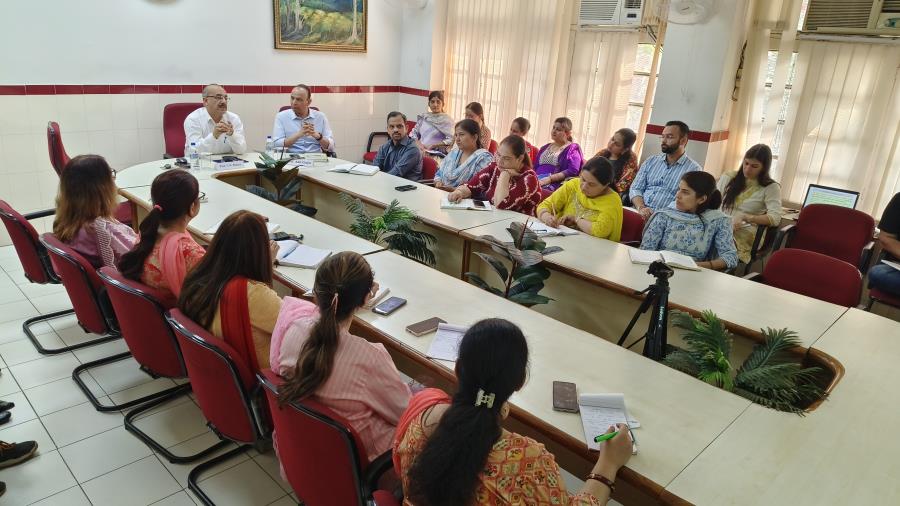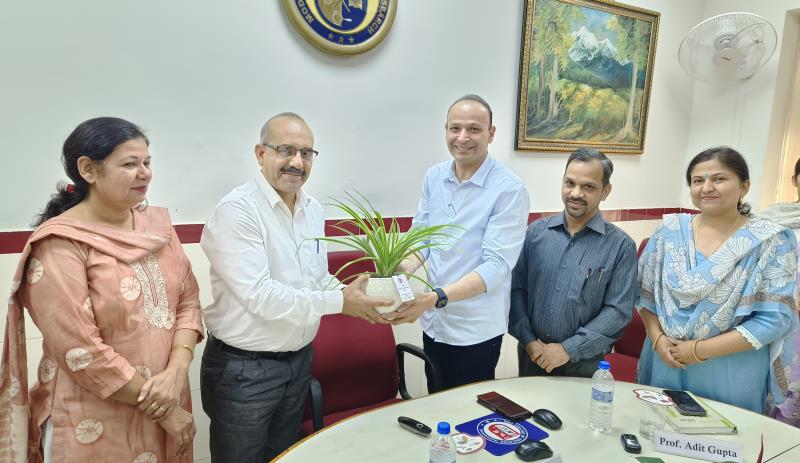Orientation on Sensitization and Pedagogical Integration of Indian Knowledge System
DATE Oct 29, 2024
SPEAKER Prof. J. N. Baliya
An orientation session was organised by MIER College of Education on the topic ‘Sensitization and Pedagogical Integration of Indian Knowledge System’ on 29th October 2024. The resource person was Prof. J. N. Baliya from the School of Educational Studies, Central University of Jammu. Prof Adit Gupta, Director and Principal of MIER College, chaired the session. Prof. Mool Raj, Controller of Examination, Prof. Nishta Rana, Head SoE, Dr Monika Bajaj, Head SSSH, Dr Bharti Tandon, Deputy Head SoE, along with the faculty members of both the schools and IQAC members, attended the session. The orientation program was envisaged to help college faculty members gain a comprehensive understanding of the Indian Knowledge System (IKS) and its integration as part of the National Education Policy (NEP). It addressed fundamental questions for teachers, highlighted the significance of IKS, and discussed the challenges faced in implementing IKS in higher education.
Prof. Adit Gupta extended a warm welcome to Prof. J.N. Baliya and spoke on the various pedagogical techniques the college put into use, according to NEP.
Prof J. N. Baliya said the Indian Knowledge System (IKS) encompasses the vast and diverse knowledge traditions developed in India over thousands of years. It includes many disciplines, such as philosophy, science, medicine, arts, architecture, linguistics, mathematics, and spiritual studies. Rooted in ancient texts like the Vedas, Upanishads, and Puranas, as well as regional traditions, IKS represents an integrated approach to understanding life, nature, and the universe through different activities, pedagogies and projects. He gave a detailed overview of teachers' basic queries while implementing several courses using diverse pedagogies under the umbrella of IKS, the importance of IKS, the classification framework for IKS and how to integrate IKS in Higher Education. He further discussed several model curricula courses of IKS at the UG/PG level. He talked about several challenges in the implementation of IKS in higher education and the participation of students in the promotion of IKS.
In the concluding remarks, Prof. Adit Gupta thanked Prof. J. N. Baliya for such an eye-opening session for all faculty members.




